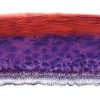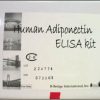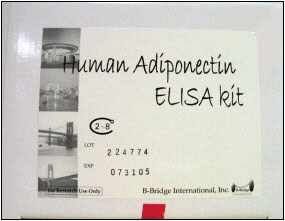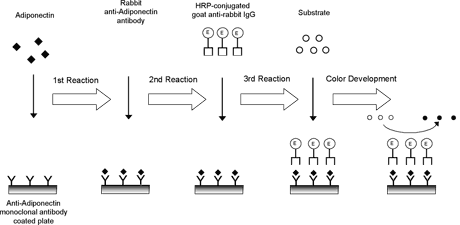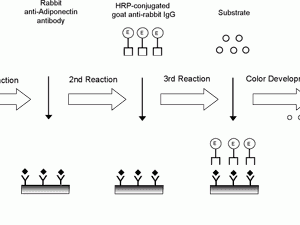Nexa-ADIP-B
Login to see pricesHuman Adiponectin ELISA (ELISA ONLY)
Adipocytes (fat cells) express a variety of proteins that function in the homeostatic control of glucose and lipid metabolism. Insulin regulates the translocation and secretion of many of these proteins in response to changes in energy balance. Adipocyte complement-related protein of 30 kDa (Acrp30), now known as adiponectin, is a protein whose secretion from adipocytes is enhanced by insulin stimulation.
It has been suggested that the development of non-insulin-dependent (Type II) diabetes may involve dysregulation of adiponectin secretion (1). In support of the link between obesity and Type II diabetes, it has been shown that decreased expression of adiponectin correlates with insulin resistance (2,3), and that adiponectin appears to be a potent insulin enhancer linking adipose tissue and whole-body glucose metabolism (4).
- Nemet, D., et al. (2002) Relationships among adiponectin and other adipose cytokines, body composition, and fasting insulin in lower socioeconomic middle school children. American Physiological Society’s (APS) Abstracts.
- Yamauchi T., et al. (2001) The fat-derived hormone adiponectin reverses insulin resistance associated with both lipoatrophy and obesity. Nature Medicine, Aug; 7(8): 941-6
- Kubota, N., et al. (2002) Disruption of adiponectin causes insulin resistance and neointimal formation. J Biol Chem. 277(29): 25863-6 (Epub 2002 May 24).
- Berg A.H., et al. (2001) The adipocyte-secreted protein Acrp30 enhances hepatic insulin action. Nature Medicine, Aug; 7(8): 947-53
This human Adiponectin ELISA kit is designed to measure the concentration of human adiponectin from human serum/plasma, human adipocytes, or conditioned medium.
Protein Expression Kits
- Adiponectin by ELISA kit used to measure serum adiponectin in human female after induction of acidosis (Disthabanchong, et al., 2010).

